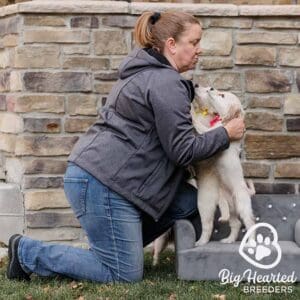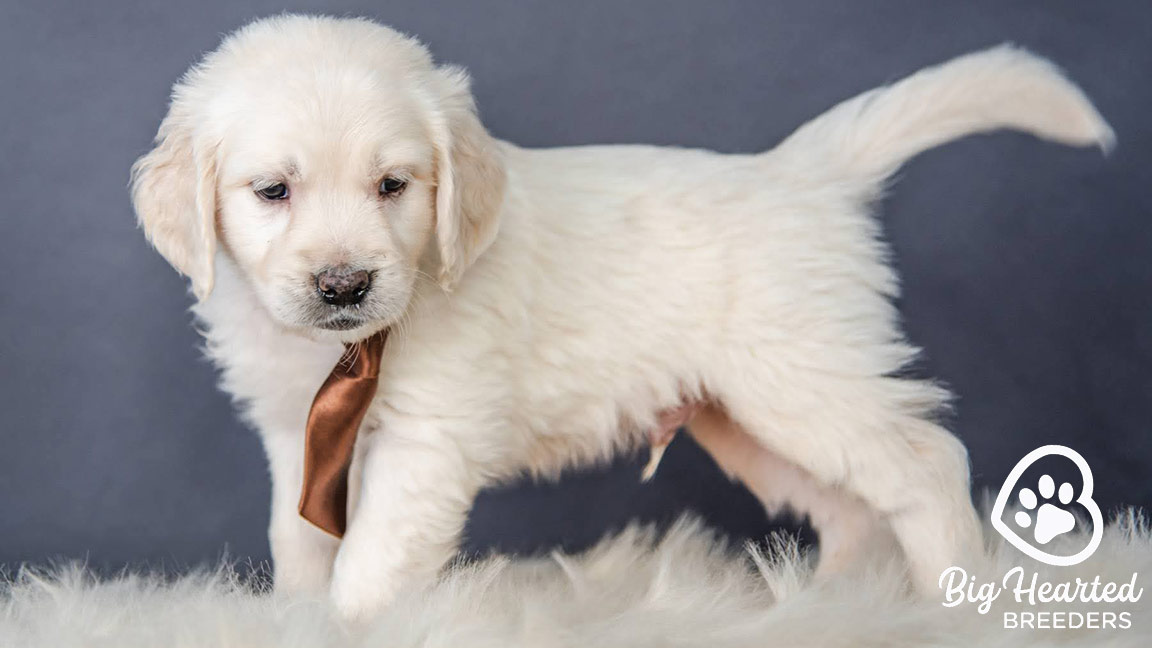How to Prevent Joint Issues in Dogs
How to Prevent Joint Issues in Dogs
At Big Hearted Breeders, we believe healthy puppies grow into strong, happy dogs when given the proper foundation. One of the most common concerns families face as their dogs get older is joint health. Watching a dog slow down because of stiffness or discomfort is heartbreaking, but the good news is that many joint issues can be prevented or managed with the right care.
This guide will help you understand what causes joint problems in dogs, the signs to look out for, and the best steps you can take to keep your dog’s joints healthy from puppyhood through their golden years. Drawing from our experience raising Mini Golden Retrievers in a loving, health-focused environment, we’ll share practical tips and trusted solutions, including the support products we recommend to our puppy families.
Why Joint Health Matters
Joints are where bones meet, and they allow your dog to run, jump, play, and explore. Just like people, dogs can develop problems such as arthritis or hip dysplasia if their joints are under too much stress or if their genetics make them more prone to these conditions. Some breeds, including retrievers, doodles, and other active dogs, are more likely to face joint challenges as they grow.
Taking steps early to protect joint health is far easier than treating painful problems later. Strong joints mean a longer, more comfortable life, full of all the adventures you and your dog want to share.

Common Causes of Joint Issues
In our years as breeders, we’ve seen that joint concerns can develop for several reasons. Understanding the most common causes will help you prevent them.
Main contributors to joint problems in dogs include:
- Genetics, such as hip or elbow dysplasia
- Rapid growth in large or medium-sized breeds
- Excess body weight puts stress on joints
- Lack of proper exercise or overexercising growing puppies
- Injuries during play or activity
- Nutritional deficiencies
A Breeder’s Experience with Joint Care
When families bring home a Mini Golden Retriever from us, they often ask how to keep their puppy’s hips and joints healthy as they grow. We always emphasize that prevention starts early. Puppies should have regular but gentle exercise to build muscle without straining developing joints.
We once had a puppy named Finn whose new family loved hiking. They reached out, worried that long, steep trails might be too much for him as a youngster. We guided them to keep hikes short during puppyhood and slowly build endurance. They also added pawTree Joint Support Plus into his daily routine. By the time Finn reached adulthood, he had strong muscles supporting his hips, and his family still enjoys outdoor adventures without worry.
Stories like Finn’s remind us that with careful planning, you can help your dog avoid many common joint problems.
How to Prevent Joint Issues
The best way to keep your dog’s joints healthy is a combination of competent care, nutrition, and consistent exercise.

Maintain a Healthy Weight
Carrying extra weight puts strain on a dog’s joints, which speeds up wear and tear. Feeding the right portions and avoiding too many treats makes a big difference.
Provide Balanced Exercise
Gentle, regular exercise builds strong muscles that protect joints. Puppies should avoid repeated high impact activities like jumping off furniture until their joints are fully developed.
Focus on Nutrition and Supplements
A balanced diet supports bone and joint development. To go a step further, many families use supplements explicitly made for joint support. At Big Hearted Breeders, we recommend pawTree Joint Support Plus. These chews are veterinarian-formulated, made in the USA, and designed to support cartilage, reduce stiffness, and keep dogs moving comfortably at every stage of life.
Create a Safe Environment
Slippery floors, steep stairs, and rough play can all contribute to joint injuries. Adding rugs, using ramps, and supervising play can prevent minor accidents that add up over time.

Real Life Tips We Share with Puppy Families
From our experience, here are some of the most effective joint support strategies:
- Start supplements early, especially in breeds prone to joint concerns
- Encourage swimming and walking as low-impact exercises
- Avoid overfeeding during the rapid growth stage
- Use pawTree Joint Support Plus daily for consistent results
- Teach puppies not to jump excessively on hard surfaces
We’ve seen these steps help countless puppies grow into active, healthy dogs that stay playful well into their senior years.
When to See a Veterinarian
Even with the best prevention, some dogs may still develop joint issues. It’s important to know the warning signs that mean a vet should check your pup.
Look for:
- Limping or stiffness, especially after rest
- Reluctance to climb stairs or jump
- Decreased activity or energy levels
- Whining or sensitivity when touched
Early treatment can slow the progression of joint problems and keep your dog comfortable.
A Loving Perspective on Joint Care
We remind families that joint support is not just about preventing problems but also about giving your dog the freedom to live fully. Whether that means hiking trails, chasing tennis balls, or simply hopping onto the couch for snuggles, strong joints make it all possible.
At Big Hearted Breeders, we’ve built our program on health testing, clean environments, and a commitment to lifelong wellness. Supporting joint health is just one part of helping every puppy thrive.

FAQ About Joint Support in Dogs
At what age should I start joint support for my dog?
Many breeders and veterinarians recommend starting supplements during puppyhood, especially for breeds prone to joint issues.
Do all dogs need joint supplements?
Not all, but active dogs and those with larger builds often benefit from extra support.
How do I know if my dog has joint problems?
Signs include limping, stiffness, difficulty with stairs, or reluctance to exercise. Always consult a vet for diagnosis.
Are pawTree Joint Support Plus chews safe?
Yes. They are developed by veterinarians and nutritionists, made in the USA, and designed for long-term use.
Can weight really affect my dog’s joints?
Absolutely. Maintaining a healthy weight is one of the most important ways to protect your dog’s joints.
Final Thoughts
Preventing joint issues in dogs starts with early care, balanced exercise, and proper nutrition. By staying consistent and using trusted solutions like pawTree Joint Support Plus, you can give your dog the gift of healthy, pain-free movement for years to come.
At Big Hearted Breeders, we are proud to raise puppies who grow strong and stay active, supported by families who care about their health every step of the way.





